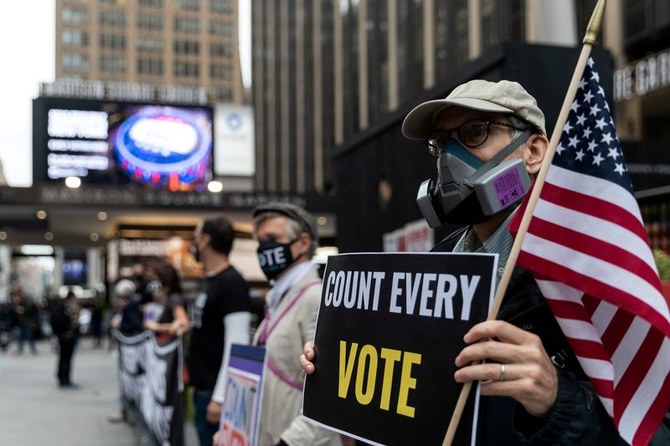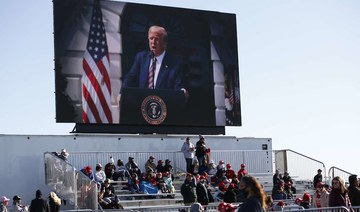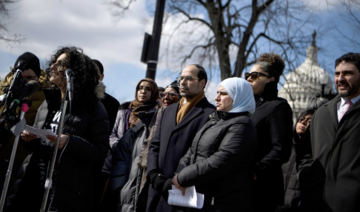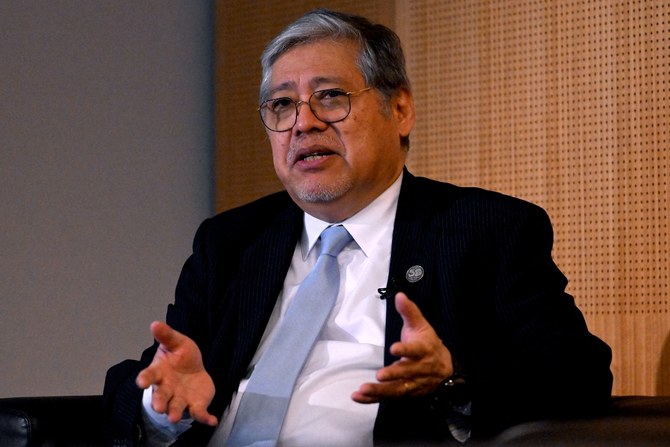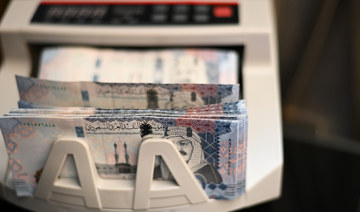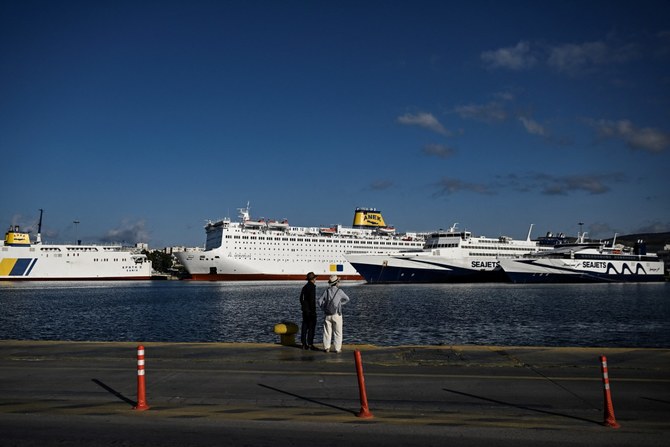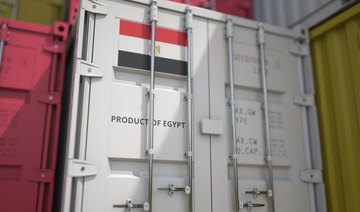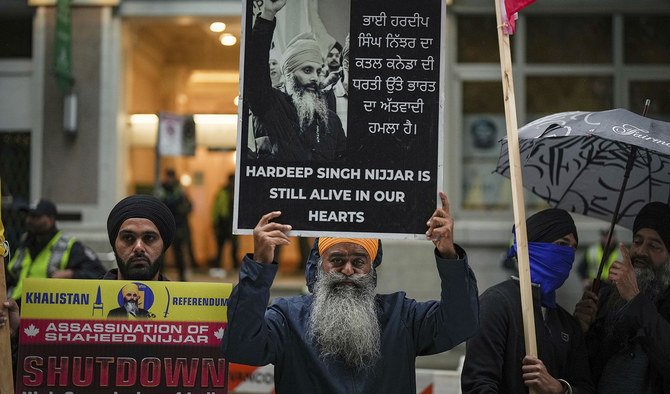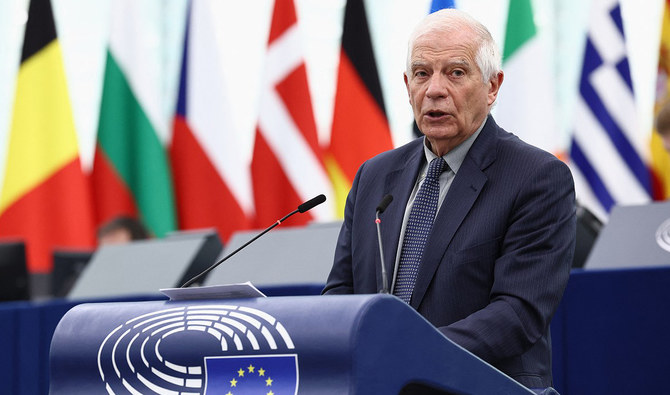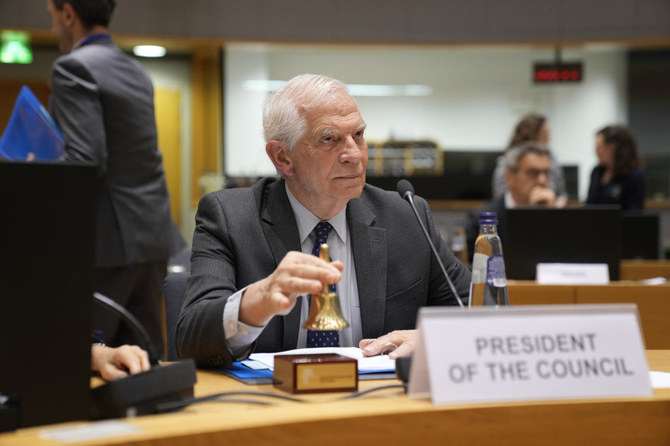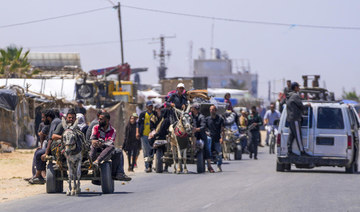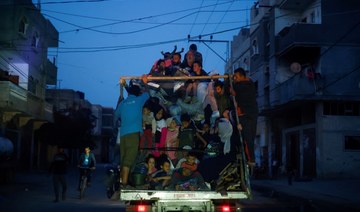NEW YORK CITY: In the Sunnyside neighborhood of Queens borough, children were screaming with excitement all weekend.
The sun came up after several drizzly days, and they were then able to don their Halloween costumes and rule the streets where every house had left them plenty of candy … outside.
Adults, on the other hand, kept the celebrations at bay during the day: This was the last weekend of New York City’s first-ever early-voting period during a general election.
At LaGuardia Community College, one of the 88 early-voting locations, the long line of voters stretched up the block and around the corner.
“I wanted to vote early and save a space for someone else on election day,” 24-year-old Lilly, who grew up in this Democratic part of the state, told Arab News.
Outside, canvassers were distributing sample ballots, urging people to vote for Democratic candidate Joe Biden and his running mate Kamala Harris.
“We need to vote him (President Donald Trump) out,” canvasser Stacey Footlick told Arab News. “We can’t afford four more years of him.”
There were many reasons for New Yorkers to get out early and vote. Increasingly frightened by the swirl of litigation regarding deadlines for when ballots can be accepted, many said they are not confident about mailing their ballots to the post office, where problems already exist with regular mail.
******
READ MORE: Arab American voter activism rallies around Nov. 3 election
******
Not that they think, as Trump has been repeating, that there will be fraud, but simply that the system is not efficient enough to give them peace of mind.
“There’s a level of civic engagement and real political determination to make a change,” said Footlick.
Some regret not having voted in 2016, when turnout was one of the lowest in US history. “I learned my lesson,” Omar Mente told Arab News. “You just can’t sit at home and run your mouth. You’ve got to come and put pen to paper.”
This election season has been laden with so many anxieties. Being able to vote early in person came to many as an antidote.
“I want to lay low on election day. It’s been a very stressful year — so much anxiety,” Stelios Bougatsous, who originally hails from Greece and is voting for the first time as an American citizen, told Arab News.
“I had an absentee ballot, but I just want to make sure that my vote is being counted. Only coming in person can give me that assurance.”
On neighborhood chat blogs, voters were getting updates on what the line wait was before venturing into a polling station. Still, some had to wait several hours.
One of them, Roberto, told Arab News: “Long lines: This is voter suppression. We need more places to vote. We need a national voting holiday. We need more voting machines in more places with more money to do that.”
He added: “There needs to be changes to the Board of Elections to make the process smoother, not harder to vote.”
Democratic New York Sen. Charles Schumer visited a polling site in the borough of Brooklyn and said: “We have to reform the electoral process. Donald Trump has tried to scam people, intimidate people in every way.”
Schumer added: “We have to strengthen the process and not let all this voter suppression happen. We’ve got to make it easier, not harder, for people to vote. Voting is the American birthright.”
New York City Mayor Bill de Blasio said earlier this week: “People are embracing this experiment. We saw people really own their democracy in New York City.”
At night, on Skillman Avenue, the party returned. Music blared out of cafes. It appeared as if the pandemic had been forgotten for a moment, and the celebratory mood — a historical staple of American democracy that was all but ignored this year — was in order again. A man wearing a tortoise costume danced to loud cheers.



